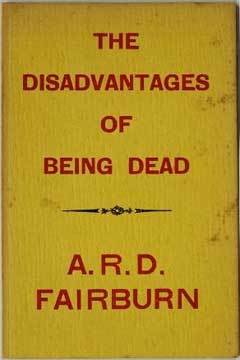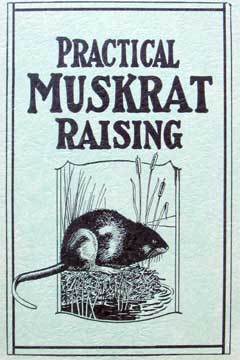Matthew Dicks's Blog, page 292
November 21, 2016
Republican Senators, Congresspeople, and interns have something oddly in common
Here is the photo of the Republican Senators and members of Congress following the election:

It reminds me of the photo taken by Paul Ryan this summer of Republican interns, but I can't qwhite put my finger on why.

November 20, 2016
Humility is lovely and oftentimes lacking in this world
I've been performing onstage for more than five years and producing shows for more than three, and here is something that has become abundantly clear to me:
Humility is a quality to be prized, and it is sadly lacking in many.
As a performer, I oftentimes find myself listening to fellow storytellers lament the ineptitude of the judges at a story slam or the stupidity of producers who refuse to cast them in their shows.
As a producer, I find myself reading emails from storytellers who think it necessary to explain their enormous degree of talent and accomplishment and sometimes even insist on being cast in one of our shows based solely upon that talent.
None of this makes any sense to me. None of it makes me ever want to cast these storytellers in my show, even if they are truly talented and accomplished. I never do.

I am not suggesting that there is a problem with possessing confidence or even assertiveness. But when you lack humility, three things become abundantly clear to me:
1. You will be difficult to work with. Your willingness to accept criticism and collaborate will be seriously compromised by the size of your ego and the certainty of your talent.
2. Your lack of humility demonstrates a fundamental disrespect for your fellow performers. When you complain that the judges were ineffective or wrong, you denigrate the rest of the storytellers competing in a slam and imply that the winner was undeserving. When you argue that the producer of a show should've cast you, you disrespect the storytellers who were chosen instead of you.
There is nothing wrong with thinking that you should have won. There is nothing wrong with confiding with your closest friend that you should've been cast in the show. But announcing your perceived slight to the world demonstrates a fundamental lack of humility that only causes people to distance themselves from you and never want to work with you again.
3. Anyone who needs to compliment themselves repeatedly and publicly - absent of any irony or humor - possesses the thinnest of skins and will invariably be an unpleasant and difficult person to work with.
Here's a rule to teach my fifth graders that would serve many adults in this world (including our President-elect) well:
Compliment others. Allow others to compliment you.
It sounds like common sense, but for many, it is almost impossible.
My agent once told me that she would turn down a project from a writer if she felt that the person would be difficult to work with, even if she knew the project would be profitable. I thought she was a little nuts at the time, but now I understand completely.
Give me an inexperienced, hard working, receptive storyteller willing to accept feedback and looking to improve over any naturally gifted or experienced storyteller who can't stop blustering about his or her talent or what he or she deserves.
A perfect explanation of our President-elect's thin skin
Substitute "toilet paper" with "Donald Trump's skin" in this bit by Ellen DeGeneres and you will have a perfect description of the man's inability to accept feedback or criticism of any kind.
November 19, 2016
Shakespeare's words seem rather appropriate even today
The description of no one in particular seems incredibly apropos in this historical moment.

November 18, 2016
Pausing the action preserved my chest, my career, and my freedom
It turns out that I tend to be exceptionally calm and collected when under pressure. I'm not sure why this is the case. Perhaps my previous experience with pressure packed, life or death situations has inoculated me from panic.
While this ability to maintain my composure under pressure can serve as a great asset, it also frequently frustrates and even angers friends and colleagues when my response to a inflammatory or high stakes situation is less than urgent.
Sometimes I know that I can seem aloof, dispassionate, unconcerned, or even uncaring. While that's not usually the case, I understand that I can appear this way.
But this composure has also assisted me tremendously on many occasions. Two in particular.
Back in 2007, a bit of something got caught in my throat while eating a bowl of soup in a restaurant. Struggling to breathe, the paramedics were called. I was rushed to The University of Connecticut Medical Center, where doctors attempted to extract the object from my throat with forceps and a trans-nasal endoscope that was passed through my nose and into my throat.
After hours of repeated attempts without success, doctors decided that surgery was required. My chest would need to be cracked in order to open and remove the object from my trachea before it found its way into my lungs.
About ten feet before we reached the doors to the surgical ward, I demanded that the gurney be stopped. "Wait," I said. "This is crazy. Before you crack my chest, is there anything we haven't tried. Think outside the box."
After a moment, one of the doctors said, "Well, we've never tried to use the endoscope that we sent through your nose directly down the throat."
"Could it work?" I asked.
Fifteen minutes later, I was surrounded by half a dozen excited doctors, including one who was operating a video camera, ready to film the procedure. It would be the first time that a trans-nasal endoscope would be used down a patient's throat, and if successful, this would be a big moment for everyone involved. Two doctors held me down in order to counteract my gag reflex and two more went to work, forcing the endoscope down my throat.
A couple minutes later, a large bay leaf emerged from my throat at the end of the endoscope.

The doctors were excited. They had found a new use for a old tool.
I was excited. My chest was intact, all because I forced everyone in their haste to stop and think.
When the stakes are high, slow things down. Stop the action. Give everyone - including yourself - time to think.
The other time this ability to stop and think while under intense pressure probably saved my chances at a teaching career and kept me out of jail.
That is a story I told onstage earlier this year:
November 16, 2016
November 15, 2016
November 14, 2016
Seasons Up Close Episode 1
I'm doing the final segment in Seasons new television show Seasons Up Close. It airs on Sunday mornings locally in Connecticut about six times a year.
Here's the first episode, which airs last week.
November 13, 2016
Donna Gosk stepped off the aircraft carrier. Nothing has been the same ever since.
For 17 years, I worked alongside Mrs. Gosk, the real life version of the teacher from Memoirs of an Imaginary Friend. Donna retired from teaching last June, and not a day has gone by this year that I haven't walked in the direction of her old classroom, anxious to ask her a question or tell her some new idea.
Then I remember that she's gone - probably playing golf - and a part of me dies all over again.
Donna was old enough to be my mother. In fact, I'm the same age as her middle daughter. Yet throughout my teacher career, I counted Donna as my best friend and closest confidant. The 30 years that separated us in age felt more like 30 minutes.
Donna taught me how to stay out of trouble early in my career, and then she and I got into lots of trouble together later on. Like me, Donna was not a rule follower. Not afraid of a little trouble. She was a nonconformist. A teacher who knew what needed to be done and did it regardless of the current swing of the academic pendulum or latest administrative whim.
Donna taught children to love to read. This was her greatest gift. Her super power. The thing she did that changed the future for so many kids. Changed the world, really.
Then she taught me how to get my kids to love reading.
Donna taught children to be good citizens. She taught them about John and Abigail Adams and quoted both often. She read then The Witch of Blackbird Pond and beseeched her colleagues to do the same. She insisted that students sit up straight and speak in a clear voice. She marched through her classroom with a meter stick, claiming it was her "meter beater" and threatening children who did not behave.
Adult occasionally cringed at these antics, but these were adults who didn't understand children. Students loved Mrs. Gosk. They revered her. They never thought for a minute that she would strike them with her stick. They understood and appreciated the value of theater, bluster, and outrageous humor.
Donna and I taught poetry together for years. We took children on field trips and into the woods for days at a time. We golfed together. Read books together. Laughed together.
We stood together on 9/11. We propped each other up on the morning of Newtown. We held each other when each of us lost parents. Donna stood beside me like a rock when evil people tried to take away my teaching career. We watched so many good friends come and go, leaving to raise babies, take on new challenges, or breathe easy in retirement.
We mourned the loss of these dear friends and marshaled on.
Donna used to call teaching "life on the aircraft carrier." It was a good analogy. A school is like a universe to the people who work within its walls. It possesses its own culture. Its own norms. Its own way of being. In many ways, the brick and stone of the schoolhouse wall insulates its occupants from the rest of the world. Buildings fall and the world changes forever, but on the aircraft carrier, subtraction lessons and science experiments continue like nothing has happened. Colorful books are read to small children in cheery voices. The recess bell rings. Lunches are served. Allegiance is pledged to the flag. As the world outside flails and wails and sometimes falters, the hallways of a school continue to ring with the sound of laughter and learning.
Donna stepped off the aircraft carrier last June, and it hasn't been the same for me ever since. She is one of a growing list of teachers who I have loved who are no longer sailing with me. The list includes my wife and some of my closest, dearest, most respected friends, but the one who I worked with on a constant, daily basis for 17 years was Donna.
Donna was one of the best teachers who I have ever known. This is not to say she was not without her flaws. She was never on time for anything. She spent most of field day in a lawn chair. She could not be bothered to learn new technologies. She has a hard time not laughing when she was being scolded. She had little time for parents. She sometimes misjudged the sharpness of her tongue. She may have smacked a principal once in a angry fit.
But she was one of the finest teachers in the land. She was a teacher who children clamored to have and parents prayed to get. She earned every bit of her retirement, but children have suffered with the loss of Donna from the teaching ranks.
I suffer.
Teachers like Donna are irreplaceable. Their loss is a goddamn tragedy. They move onto a life of ease and leisure and leave us behind a little less whole. A little less prepared for each day. A little bewildered by the idea that someone so good at teaching little children will no longer be teaching anymore.
I miss my friend. I have a picture of her on my desk. She is standing in a field, her fist raised defiantly. I look at it many times during the day. I speak to it. Raise my fist in return. Move on because that is what Donna would tell me to do.
Still, nothing has been the same without her.

November 12, 2016
The Weird Book Room: The last place I want my books to end up
I sometimes ponder the fate of my books.
Will anyone read them a hundred years from now?
Will libraries still have them on their shelves?
Will they even exist?
One of my friends recently suggested that my books are merely an attempt to negate my mortality and live forever. This is not true, of course.
Books aren't even close to a suitable replacement for my desire to live forever.
Worse than ceasing to exist or never being read, what if my books end up in a place like this, alongside titles like these:









